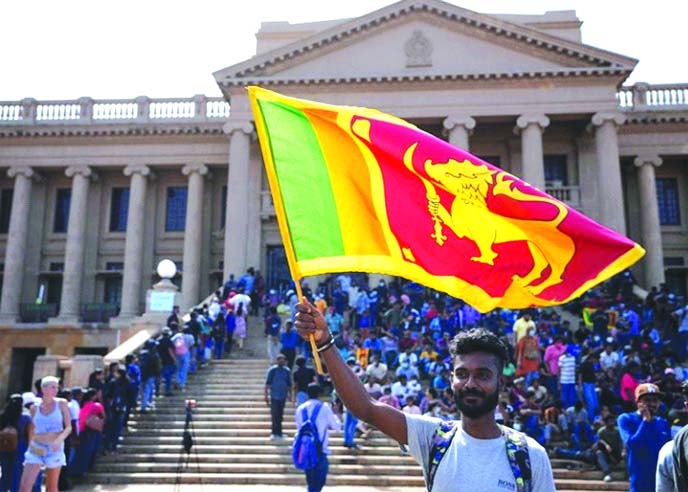
Al Jazeera :
“We have seen people fight for food at our meal drives, it is very difficult to watch”, the co-founder of a charity organisation which provides regular meals to the poor in the country, tells Al Jazeera.
“Parents from the schools we provide meals to have asked us to increase the number of meals provided during the week as the children don’t get proper meals when they are at home during the weekend”, Community Meal Share Trust’s Nadeeka Jayasinghe says.
On Thursday, Sri Lanka and the International Monetary Fund (IMF) reached a staff-level agreement on a 48-month, $2.9bn Extended Fund Facility which will also help it secure short-term funds from other donors. But, even as the country has taken the first steps in getting financial aid from the IMF, the day when residents can resume a normal life is still not in sight.
A recent assessment by the World Food Programme Sri Lanka found that nearly 30 percent of the country’s 22 million population were now food insecure, with one in every four people regularly skipping meals to be able to afford to eat. This is the plight of many poor and ‘newly poor’ Sri Lankans who have been battered by high inflation rates, shortages, and job and income losses.
“The data seems to suggest that by the end of the year, half the population could slip below the new poverty line,” Indrajit Coomaraswamy, a former governor of the Sri Lanka Central Bank, told Indian news portal The Wire in July.
Inflation at the end of July was measured at 66.7 percent while national food inflation hit a whopping 82.5 percent in the same period. The government recently approved electricity tariff hikes, as the state-owned Ceylon Electricity Board faces increased costs of power generation amid severe debt levels.
Kerosene prices, which had not been increased in line with other fuels earlier this year, were recently increased from 87 Sri Lankan rupees ($0.24) to 340 Sri Lankan rupees ($0.93) per litre. A water tariff hike has been announced for September to cover the increased cost of distribution on account of higher fuel prices.
Jayasinghe began her charity organisation in March this year after noticing that many urban communities were struggling to meet their food requirements due to rising prices and shortages in cooking gas. While the Trust has managed to expand its coverage thanks to generous international and local donors, the cost of supplying and transporting food keeps increasing and the cost per meal has shot up from 250 Sri Lankan rupees ($0.68) to up to 350 Sri Lankan rupees ($0.95) over the last four to five months.

